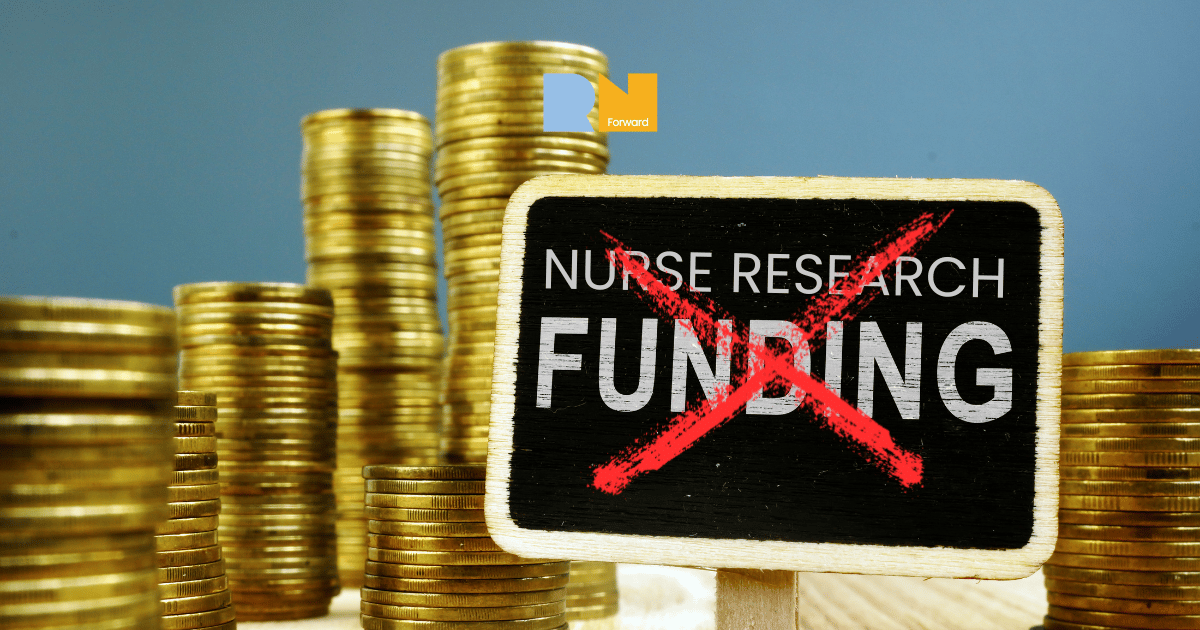- RN Forward
- Posts
- 🗞️ Nurse Research To Be Defunded
🗞️ Nurse Research To Be Defunded
This edition covers the proposed shutdown of nursing research programs, 5 new healthtech unicorns, surveillance concerns with staff tracking, and remote monitoring reimbursement debates.

Team Huddle
Everyone says you don’t have to network to make it in healthcare. Prior to last year, I would have to agree. However, when you’re tired of healthcare’s status quo and want to make an impact at the systemic level, your professional network suddenly becomes your secret weapon. With every new nurse I meet, I advise them to:
Create a LinkedIn presence
Connect with fellow nurses
Practice generosity
Generosity can look like many things, a simple social media follow to time giving feedback on a product someone is building. What goes around, truly comes around — you never know what opportunities will come from it!

I usually end connection calls with, “What can I do to help you today?” and an actionable follow up.
So it’s only apt that I finish this blurb with, "What can I do to help you today?” → Connect with me on LinkedIn and let me know. 😌
News Nurses Need to Know
National Institute for Nurse Research (NIHR) to be closed down in 2026
Details: Per the leaked US Department of Health and Human Service (HHS) proposed budget, NIHR is apart of the $40B cuts of core services. This also includes eliminative title VII Nursing Workforce Development Programs which was initially created to improve staffing nationwide.
Why it matters: Say goodbye to grants for new and existing nurses to subsidize education costs and career advancement. 👋 Nursing research will also take a hit as programs funding research to better understand the role nursing pays in patient care will end. Examples of these programs include development of best nursing practice and training of nurses working mental health, maternal care, end-of-life care, and substance abuse. The American Nurses Association (ANA) responded to the proposal with a statement urging the Trump administration and HHS Secretary to reconsider.
19 new tech unicorns emerged this year — 5 are in healthcare 🦄
Details: As of March 2025, Insilico Medicine ($1B), Abridge ($2.8B), OpenEvidence ($1B), Hippocratic AI ($1.6B), Truveta ($1B) all join the unicorn list.
Why it matters: Everyone knows that US healthcare outcomes are grossly poor compared to the $4.9 trillion we spend on healthcare services and products. Its the butt of many dark jokes. With the US healthcare market accounting for 17.6% of the nation’s gross GDP and projected to be 20% by 2032, there is a capitalism silver lining: Healthcare is a fat AF market and more unicorns will emerge from this sector.

Northeast Georgia Health System (NGHS) gave location tracking badges to 10,000 staff for safety
Details: NGHS implemented location-tracking badges for 10,000 staff members to enhance safety and operational efficiency. These badges enable real-time alerts during emergencies, automate administrative tasks, and display staff information in patient rooms, thereby improving response times and patient comfort.
Why it matters: Workplace violence in a hospital setting is 100% a problem. I don’t deny it. While i’m pro using location-tracking badges for clinician safety and automating burdensome administrative tasks, its other use case of tracking when and how often nurses come to round of patients makes me wary. When does it stop being about improving response times and patient comfort and more about surveillance creep? Bossware is real y’all. Trust, autonomy, and workplace culture is paramount to foster a symbiotic relationship between employees and administration. This is a slippery slope. 🛝💦

Peterson Center on Healthcare’s (PCH) Evolving Remote Monitoring Report
Details: Spending on Remote Physiologic Monitoring (RPM) surged from $6.8M in 2019 to $194.5M in 2023, with hypertension accounting for 57% of RPM episodes and musculoskeletal disorders comprising 59% of Remote Therapeutic Monitoring (RTM) episodes. Clinical benefits from remote monitoring are often condition-specific and time-limited. Ex: RPM is most effective for hypertension management within the first 6 months, while benefits for diabetes are less pronounced. PCH also raised concerns about indefinite billing practices, with some providers extending monitoring beyond periods of clinical benefit = potential wasteful spending. The report recommends aligning coverage and reimbursement with clinical value, ensuring access to high-impact services, especially in underserved areas, and improving data collection for better oversight.
Why it matters: I’m all for tech in healthcare but companies/providers being able claim reimbursement for up to $1,110/patient/year is wild and a clear cash grab. Nurses involved in RPM/RTM health tech development and implementation should advocate for reimbursement models that tie payments to clinical outcomes to ensure that remote monitoring services are both effective and financially sustainable. We should also prioritize systems that provide detailed insights into patient data, device usage, and clinical outcomes to inform evidence-based practices and future policy decisions.
HealthTech Consulting 101: What We’ve Learned After 200+ Startup Conversations
Details: The Medical Consulting Group’s guide helps clinicians (especially those new to the space) understand how to break into healthtech consulting. Read through key actions like identifying your value as a clinician, learning startup language (e.g., MVP, TAM), and navigating regulatory and compliance complexities.
Why it matters: Clinical expertise is a valuable asset and nurses have tons of it! Understanding healthcare regulations, compliance, and patient centered workflows makes nurses a value-add for things like product design and usability testing. Establishing a personal brand in health tech community through proactive networking and thought leadership are the first steps to cementing yourself as a reputable healthtech consultant.
Funding Announcements
💸 = Hiring potential. Follow these companies closely to see Nurse-qualified positions posted. Remember: Just because some positions don’t say “Nurse”, doesn’t mean you aren’t qualified!
Hellocare.ai, a virtual nursing platform, raised $47M growth round.
Cofertility, an egg donor platform, raised $7.25M
Superpower, a longevity health platform, raised a $30M series A
Trellis Health, a tech-enabled women’s health clinic, raised a $1.8M pre-seed
Biolinq, a biotech company making CGMs, raised $100M to transition from trials to commercialization
Other Notable Reads
READ
📚 Survey reveals: Nurses believe they play a pivotal role in innovation
📚 ShiftMed partners with Powers Health to roll out their software at their Community Hospital
📚 Annals of Internal Medicine Study: Comparison of Initial Artificial Intelligence (AI) and Final Physician Recommendations in AI-Assisted Virtual Urgent Care Visits
📚 CHG Healthcare Launches Nursesmart, a vendor management system (VMS) designed for nurse staffing
📚 Texas Court rejects Biden administration’s nursing home staffing standard
On The Blog
Forward Nursing: Opportunities 🏃🏻♀️
Round-up of grants and career development opportunities i’ve come across that can help nurse innovators like YOU! (Not sponsored or affiliated with RN Forward.)
NurseApproved is hiring nurse product reviewers.
TBH: Great opportunity to try out the latest healthcare products and get paid for sharing your perspective
Compensation: $300 per product review
Apply now
XPC Lab’s — Battle of the Prompts
TBH: Add hands-on LLM experience to your resume! Learn about AI prompting and how to apply it to real EMR datasets to result in clinically meaningful insights. Its self-paced 2-3 hours of work over 48 hours.
When: May 9-11, 2025 (Virtual)
Cost: Free
Apply now

Reply